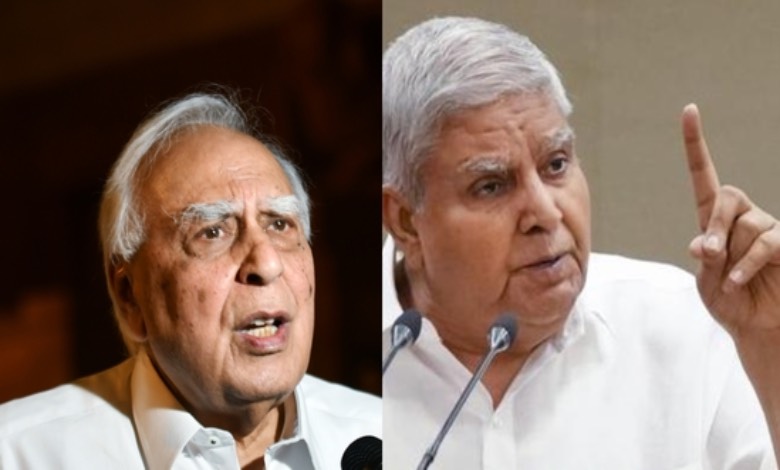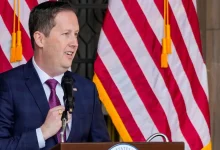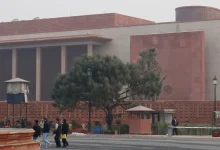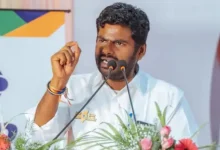
Senior advocate and Member of Parliament Kapil Sibal has strongly criticized Vice President Jagdeep Dhankhar’s recent remarks questioning the Supreme Court’s authority to direct the President, asserting that the judiciary has a constitutional duty to step in when the executive fails to act.
Speaking at a press conference, Sibal responded to Dhankhar’s comment that the judiciary cannot act as a “super parliament” and issue directives to the President. The Vice President’s criticism followed a Supreme Court verdict that mandates the President to decide within three months on bills forwarded by governors.
“If the executive is not fulfilling its responsibilities, the judiciary has every right to intervene. Judicial independence is essential to a functioning democracy,” Sibal stated.
The former Union Minister expressed disappointment over Dhankhar’s remarks, calling them unusually political for someone holding the position of Rajya Sabha Chairperson. “I’ve never seen any Vice President make such statements. It’s disheartening,” he said.
Referring to the President’s constitutional role, Sibal emphasized that the head of state is bound by the advice of the Cabinet and does not act independently. “The President is a titular head and cannot act on personal discretion,” he noted.
Sibal also took issue with Dhankhar’s criticism of Article 142 of the Constitution. The Vice President had described it as a “nuclear missile” used by the judiciary against democratic institutions, suggesting the court was overstepping its limits.
Defending the constitutional provision, Sibal said, “Article 142 empowers the Supreme Court to ensure complete justice. These powers are enshrined in the Constitution—not handed over by any government.”
He also invoked the government’s 2016 demonetisation move in response to Dhankhar’s “nuclear missile” analogy. “If anything resembled a nuclear strike, it was demonetisation. No one seemed troubled back then,” Sibal remarked.
The Supreme Court ruling in question had overruled the Tamil Nadu Governor’s decision to indefinitely withhold assent to state bills, marking the first time the court issued a timeline for Presidential action.
Sibal concluded by urging the executive to refrain from attacking the judiciary, warning that undermining judicial independence poses a threat to democratic governance.




